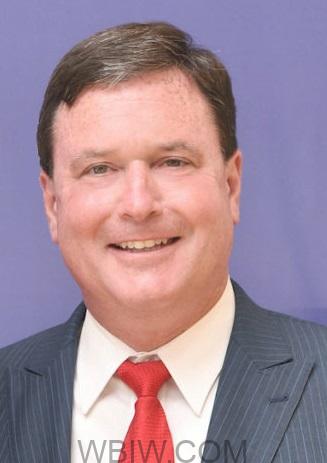
INDIANA – Attorney General Todd Rokita and his team continue to rack up tens of millions of dollars in penalties from illegal robocallers, amassing court wins and settlements far beyond Indiana state lines.

Just last week, Rokita’s office led 49 bipartisan attorneys general from the Anti-Robocall Multistate Litigation Task Force against Avid Telecom, a company that sent 24 billion problematic calls during four years. Avid Telecom even continued transmitting robocalls despite hundreds of warnings that illegal phone calls were being transmitted across their networks – a blatant disregard for telecom privacy that is common throughout the illegal industry.
After successful arguments from Rokita’s office, the Arizona District Court ruled against Avid Telecom’s motion to dismiss. This set up Indiana’s Data Privacy & ID Theft team to hold the company, its owner Michael D. Lansky, and vice president Stacey S. Reeves accountable in the courtroom.
But beating robocallers in court – or sometimes even locating them – is the result of innovation and dedication within the Indiana Attorney General’s office.
In the years leading up to Rokita’s tenure as attorney general, Consumer Reports and trade magazines described the billions of robocalls hitting Indiana as “an epidemic…no phone is safe.”
Rokita’s anti-robocall attorneys pursued defendants responsible for hitting Hoosiers with over 25 million scam calls in less than one year, taking advantage of everything from auto insurance claims to DirectTV payments. Defendants, like John Caldwell Spiller II, the owner of Texas-based Rising Eagle Capital Group LLC and JSquared Telecom LLC, spoofed phone numbers and bypassed both federal and Indiana “Do Not Call” lists to target their victims.
Rokita and his office’s Data Privacy and Identity Theft team declared war on robocalls in 2021, filing a first-of-its-kind lawsuit against Startel Communication LLC. This now-banned gateway operation allowed robocalls from India, the Philippines, and Singapore to harass Hoosier phone lines freely. That same year, Rokita dismantled the massive Associated Community Services (ACS) telefunding operation, which swindled $110 million from 67 million consumers nationwide who thought they were donating to charities.
Today, robocall tracking sites like Robokiller have removed Indiana entirely from their “top scammer target states,” revealing a reduction of tens of millions of scam calls since 2020.
“Everyone knows robocallers are a huge nuisance, but they pose dangers much worse than merely disturbing our peace,” Attorney General Rokita said. “Quite often, these robocalls are part of criminal schemes aimed at stealing Hoosiers’ identity and taking our hard-earned money. These annoying and illegal calls are the work of professional scammers looking to prey on unsuspecting victims. That’s why we have fought robocallers so doggedly since my first day in office, issuing around $392 million in fines and settlements from robocalling operations.
In August of 2022, Attorney General Rokita announced that his team was co-leading (with North Carolina, and Ohio) the Anti-Robocall Litigation Task Force, a 51-member collective focused on actively investigating and pursuing enforcement actions against various entities in the robocall ecosystem. Attorney General Rokita has earned national praise from telecom outlets over the years for the innovative ways in which his team has investigated and prosecuted wrongdoers – and their ability to work in lockstep with attorneys general offices across the country.
Some of these robocallers are amorphous and slippery figures that claim to have all the answers for unsuspecting U.S. victims of all ages, regarding Medicare rewards, Social Security Administration information, auto warranty “updates,” or even posing as Amazon delivery personnel.
Many robocalling operations move frequently from state-to-state or even nation-to-nation, dissolving and then reappearing under new names. That makes pursuing individual robocallers a daunting, uphill task.
In response to their changing tactics, Rokita’s anti-robocall attorneys led the innovative approach of going after the telecom gatekeepers: Voice-Over-Internet-Protocol (VoIP) providers. The move allowed Indiana to curb millions of calls and block out foreign scammers who abuse the American phone system. In another novel approach, Rokita’s anti-robocall attorneys also targeted another key ally of robocallers – people like Michael T. Smith and Scott Shapiro – operators of the physical call centers that profit from these robocalls.
WIN RUNDOWN BULLET POINTS:
- State of Indiana, et al. v. John Spiller II, et al.
- John Spiller: $122,339,320, suspended to $50,000. Injunctive terms to curb robocalling and telemarketing.
- Jakob Mears: $122,339,320, suspended to $10,000. Injunctive terms to curb robocalling and telemarketing.
- Scott Shapiro: $ 73,076,930, suspended to $250,000. Injunctive terms to curb robocalling and telemarketing.
- Michael T. Smith and Health Advisors of America: $ 73,076,930, suspended to $250,000. Injunctive terms to curb robocalling and telemarketing.
- State of Indiana v. Startel Communication LLC, et al.
- Startel and Wanda Hall: $1,338,100, suspended to $5,000, and total ban from industry.
- Piratel: $150,000, suspended to $50,000 and injunctive terms.
- VoIP Essential: $150,000, suspended to $25,000 and injunctive terms.
- State of Indiana v. Eric Simkin, et al.: $2,500 settlement and injunctive terms.
- State of Indiana v. Greg Sheppard, et al.: $30,000 settlement and injunctive terms
- Other actions:
- State of Indiana, v. One Eye LLC: Successful Civil Investigative Demand enforcement, with penalties.
- State of Indiana v. MV Realty LLC, et al.: Lawsuit
This past January, Rokita’s office successfully led 45 attorneys general in a comment to the Federal Communications Commission (FCC), ensuring that a new FCC rule would not impact the states’ litigation into VoIP providers. Litigation against those that help and assist robocallers is important, as Rokita’s office has shown. Rokita’s office secured an industry-wide ban against Startel Communication and other injunctive terms against providers like VoIP Essential and Piratel and callers like Eric Simkin and Greg Sheppard.
Through bans and injunctive action, Rokita’s team has protected Hoosiers while winning millions in suspended settlements that ensure compliance and justice in the future.
“Winning the war on robocallers requires constantly staying on offense and tracking the latest technologies the scammers are using to carry out their schemes,” Attorney General Rokita said in March 2023, following a string of large settlements and trial victories against multistate robocall operations. “We have pledged to do that since we first took office, and we continue to make good on that promise.”
“If you aid and abet lawbreakers in their commission of criminal acts, then you had best expect to be held accountable for your own role in those misdeeds,” Attorney General Rokita said this week, four years into his anti-scam caller crusade. “We have sent that message loud and clear to the culprits paving the way for illegal robocallers, and we’re going to keep going after them tooth and nail.”







.png)











